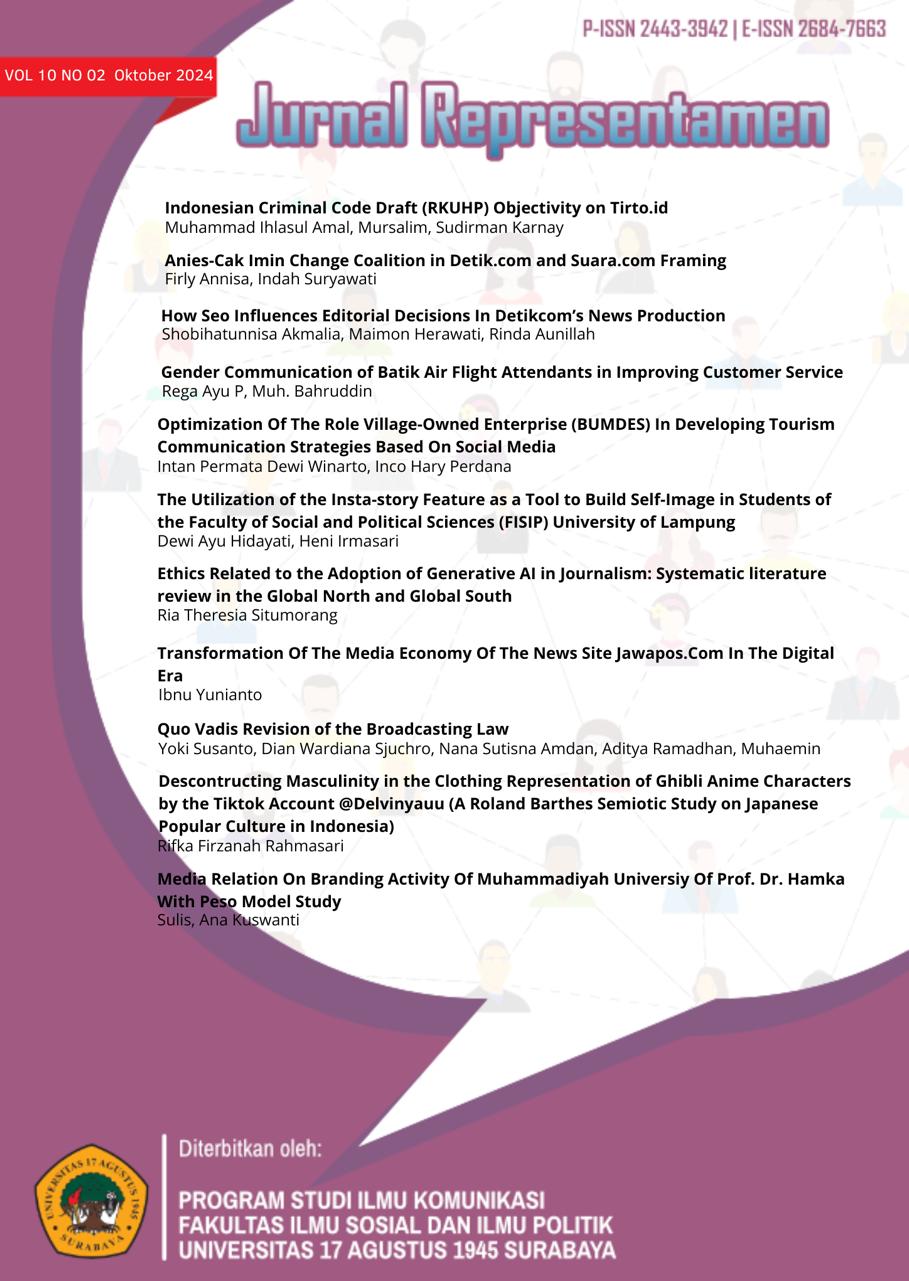Indonesian Criminal Code Draft (RKUHP) Objectivity on Tirto.id
DOI:
https://doi.org/10.30996/representamen.v10i02.10617Abstract
This research aims to determine the tendency of Tirto.id as one of the cyber media to present news on the Indonesian Criminal Code Draft (RKUHP). This research uses Westerståhl’s objectivity framework to measure Tirto’s objectivity in presenting coverage of the RKUHP. Westerståhl divides objectivity into two large dimensions, namely factuality and impartiality. The factuality dimension consists of aspects of truth and relevance, while the impartiality dimension consists of balance/non-partisanship aspects. The primary data for this research is news published by Tirto.id which discusses the RKUHP in the period May-September 2019 with a total of 118 news. News is searched using the keyword “RKUHP 2019”. The news was documented and samples were drawn using total sampling, so that the population is the sample for this research. The news was then analyzed using the content analysis method. This research shows that Tirto.id generally tends to report on the RKUHP objectively. Tirto.id fulfills the aspects of truth, relevance and neutrality with a very high percentage of all criteria in each of these aspects. Meanwhile, the balance aspect tends not to be fulfilled by Tirto.id in terms of equal or proportional access criteria. However, Tirto.id tends to present news from various sides of reporting (positive, negative and neutral) which are contained in two-sided criteria (even handed) in a balanced aspect.
Keywords: objectivity, news, RKUHP, Tirto.id, Westerståhl
Downloads
Downloads
Published
Issue
Section
License
Authors whose manuscript is published will approve the following provisions:
The right to publication of all journal material published on the jurnal representamen website is held by the editorial board with the author's knowledge (moral rights remain the property of the author).
The formal legal provisions for access to digital articles of this electronic journal are subject to the terms of the Creative Commons Attribution-ShareAlike (CC BY-SA) license, which means Jurnal Representamen reserves the right to store, modify the format, administer in database, maintain and publish articles without requesting permission from the Author as long as it keeps the Author's name as the owner of Copyright.
Printed and electronic published manuscripts are open access for educational, research and library purposes. In addition to these objectives, the editorial board shall not be liable for violations of copyright law.











